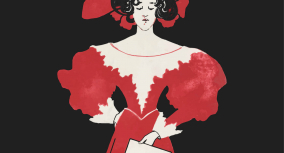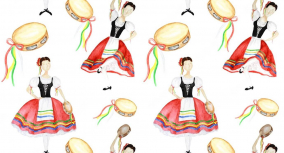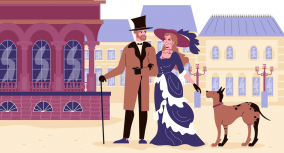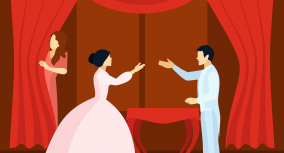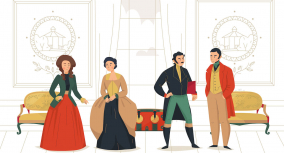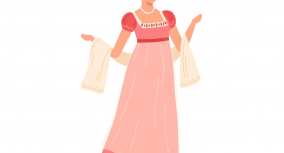The play may seem as a simple story about an average family. A husband thinks he’s a good family member, while his wife takes care of three children and is supposed to be charming and dependent. However, everything turns upside down when the truth is revealed.
If you want to check out the insights of this drama, our A Doll’s House study guide is for you.
A Doll’s House Key Facts
A Doll’s House Articles
This article contains a short summary of A Doll’s House. An illustrated timeline and detailed summaries of each act are also to be found here.
Want to know more about A Doll’s House characters? Nora and Torvald, as well as minor characters in The Doll’s House by Henrik Ibsen, are discussed here.
The key themes in A Doll’s House are: love and marriage, money and work, feminism and gender roles. Learn more in this section!
On this page with A Doll’s House analysis, you can find a few aspects that may help you understand Ibsen’s work.
Need to write an essay on A Doll’s House? We’ve collected best prompts, essay topics, questions, and examples for you on one page.
Looking for questions and answers about the play? On this page, you’ll find the answers to the most pressing questions about A Doll’s House. Enjoy!
A Doll’s House Historical Context
One of the main themes of the play is gender equality which is tightly related to A Doll’s House context. At the time when Ibsen wrote it, the situation was quite unfavorable for women. During the Victorian era, their rights were restricted by laws which was socially accepted. The most pressured were married women. Thanks to all the European regulations, only men were allowed to deal with financial transactions. Therefore, some women chose to stay unmarried to keep their freedom and get to manage their own wages. Others had to rely on their husbands when it came to money and only had a few options permitted by the laws.
As a sigh of relief, things began to change in the 20th century. The suffrage movement around Europe and the rest of the world brought a such needed revelation. Women were finally granted the right to own property and vote. However, it all happened after the time pictured in the play. Therefore, the main character did not have such privileges.
A Doll’s House was written in prose and became one of the first creations of realism, which got popular quite fast after that. Ibsen’s play is full of real-life imagery and demonstrates the lack of idealized vision of it. What is important to note is that he also implements themes and structures of a tragedy which works exceptionally well with all the descriptions of average people in prose. Ibsen appears to be a strong advocate for the human rights. He seems especially concerned about women as it became the central theme of the play.

